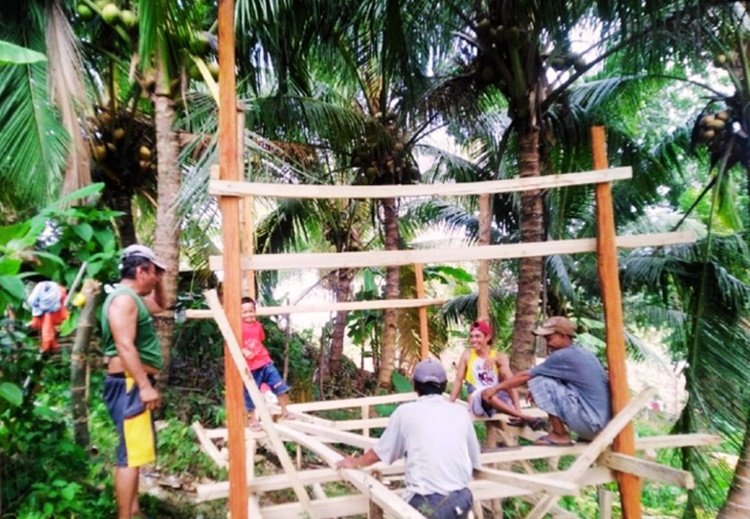BAYANIHAN – Here is the concept and importance of this Filipino trait during this modern era, which you should know.
Bayanihan is a Filipino term that embodies the spirit of communal unity, cooperation, and helping one another. It comes from the word “bayani,” which means hero or someone who performs heroic deeds.
It is called “Kapanyidungan” among the Ivatans of Batanes, “Ammoyo” by the Ilocanos, “Tiklos” by the Warays of Leyte, and “Bataris” or “Batarisan” by the Tagalogs. Even the Maranaos of Mindanao have their term for it – “Kapamagawida.”

It is a Filipino tradition where the entire community comes together to help a family move their house to a new location. In return, the family typically prepares a feast as a gesture of gratitude to those who volunteered to help.
Beyond the literal sense, bayanihan extends to various aspects of Filipino life such as disaster response, celebrations, community development, social support, and cultural preservation.
In times of calamities such as typhoons, earthquakes, or floods, people volunteer their time, donate resources, and work together to rebuild homes and communities.
During fiestas, weddings, and other celebrations, bayanihan is seen in the way neighbors and relatives come together to prepare food, decorate venues, and contribute to the festivities.
Bayanihan plays an important role in community development initiatives. People work together to build schools, repair roads, or establish livelihood programs that benefit the entire community. Through united effort and shared resources, communities grow stronger and more resilient.
It also builds a sense of belonging and interconnectedness among Filipinos. It creates networks of support, where individuals can rely on one another for assistance, guidance, and encouragement during challenging times.
This trait helps preserve and promote Filipino culture and traditions. It reinforces values of compassion, generosity, and cooperation that have been passed down through generations, shaping the Filipino identity and sense of community.

